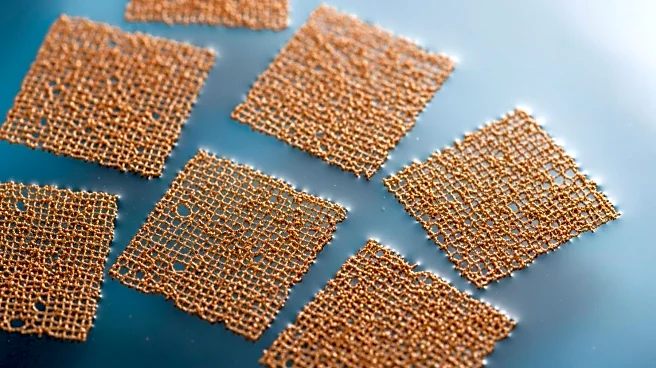What's Happening?
Researchers have developed graphene oxide-like carbon nanosheets derived from onion peel to remove ciprofloxacin, an antibiotic, from water. The nanosheets exhibit a layered structure and are effective in adsorbing ciprofloxacin through hydrogen bonding and π-π interactions. The study highlights the potential of using waste materials for environmental applications, offering a sustainable solution for water purification. The nanosheets demonstrate high adsorption efficiency, with optimal performance at neutral pH, making them suitable for wastewater treatment processes.
Why It's Important?
The development of graphene oxide nanosheets from onion peel represents a significant advancement in sustainable water purification technologies. This approach utilizes waste materials, reducing environmental impact and offering a cost-effective solution for removing pharmaceutical contaminants from water. The ability to efficiently adsorb antibiotics addresses public health concerns related to water pollution and antibiotic resistance. The research underscores the potential for innovative materials to enhance environmental sustainability and improve water quality, benefiting communities and ecosystems.
What's Next?
Further research may focus on optimizing the production and application of these nanosheets for large-scale water treatment. The study could lead to collaborations between environmental scientists and industry stakeholders to develop commercial applications. Monitoring the long-term effectiveness and environmental impact of using waste-derived materials for water purification will be crucial. The findings may inspire additional research into utilizing other agricultural waste products for environmental technologies.
Beyond the Headlines
The use of onion peel for creating graphene oxide nanosheets highlights ethical considerations in waste management and resource utilization. The approach reflects cultural shifts towards sustainable practices and the circular economy, promoting the reuse of materials for environmental benefits. The research may prompt discussions on the broader implications of using agricultural waste for technological advancements, influencing policy and public perception of sustainability.










